
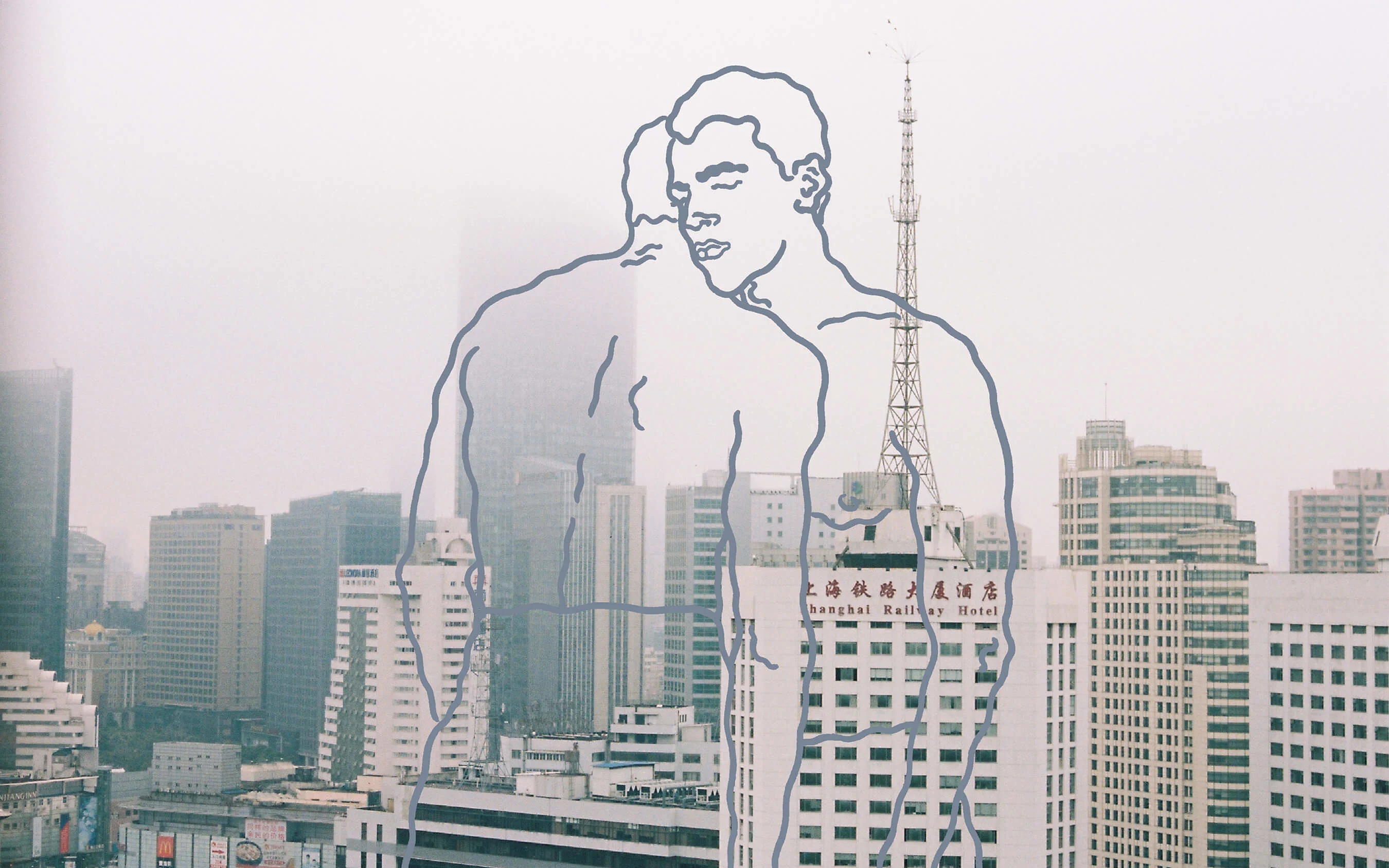
Tianju Duan’s series Boy Power! presents a strand of masculinity that some people may not be used to seeing. Alex Kahl speaks to him about how he captures something that is surrounded by so many changing perspectives.
Growing up in rural China, next to the Gobi Desert, illustrator Tianju Duan was surrounded by kids doing hobby classes of some sort, most of them playing musical instruments. He remembers being different, though, only ever wanting to draw, and would spend hours at home drawing people and figures again and again, until they looked perfect. It paid off - now, he fills every spare second he has with drawing of some kind. Feeling different has always categorized Tianju’s work somehow and he talks openly about his struggle to get to know himself, and to feel comfortable with that. “I’m a very different person to who I used to be, a north-western Chinese school boy,” he now says.
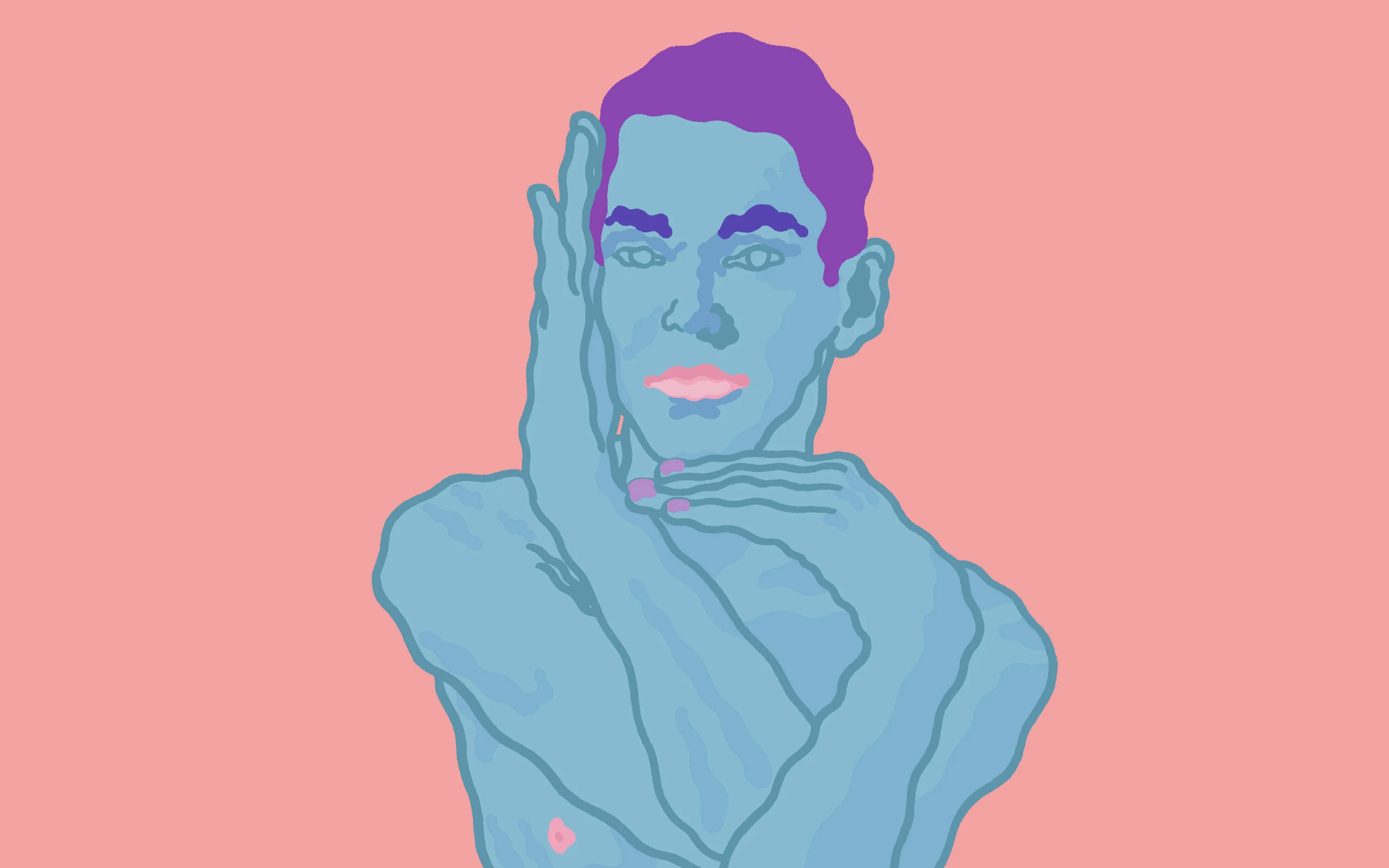
While freelancing in 2017, with a lot of spare time to create, Tianju began to draw boys for months on end. “It was fun and it kept me sane having something to focus on,” he says. “Slowly I found more and more connections with the images I created. They reflect my mood and thoughts at those moments.” Tianju was uncertain about his own sexuality at the time, unsure about his opinions on masculinity. “In the beginning, I only understood binary gender rules,” he says. He would draw portraits of men, standing amongst flowers or holding plants, showing their skin and posing, confident yet shy. These illustrations became Boy Power!, a representation of Tianju’s — and society’s — gradually evolving view of what it means to be a man.
“The guys I was drawing didn’t have many of the features that are considered ‘hot’ in the mainstream, but in my eyes they are all super attractive in their own way,” he says. “The subjects in my illustrations are my idealised version of what ultimate beauty is - soft, confident, comfortable, sensual and sensitive. I came to a conclusion that it’s not how you look but how you serve your looks.”

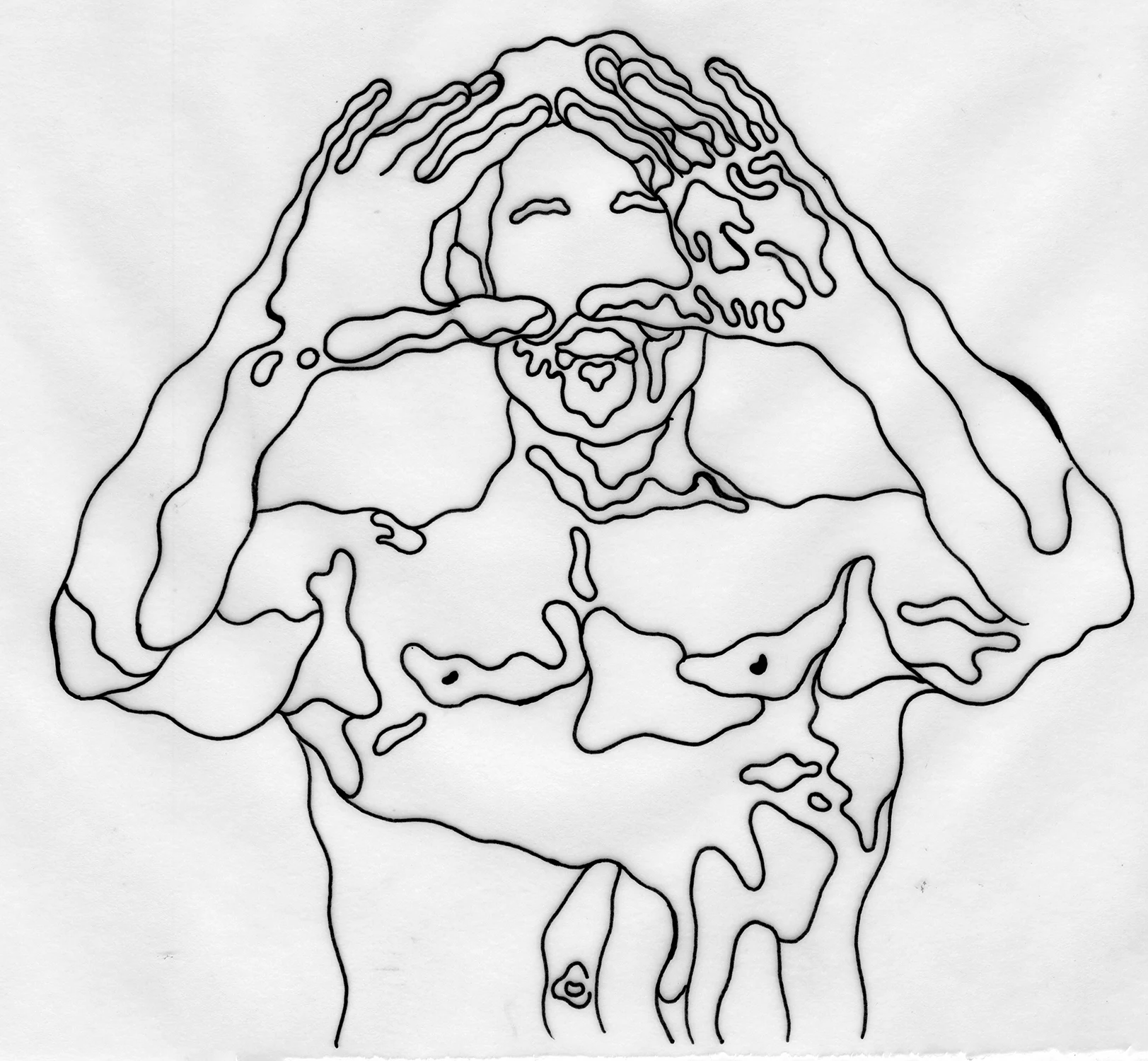
The way he moved... it just looked so effortless and light.
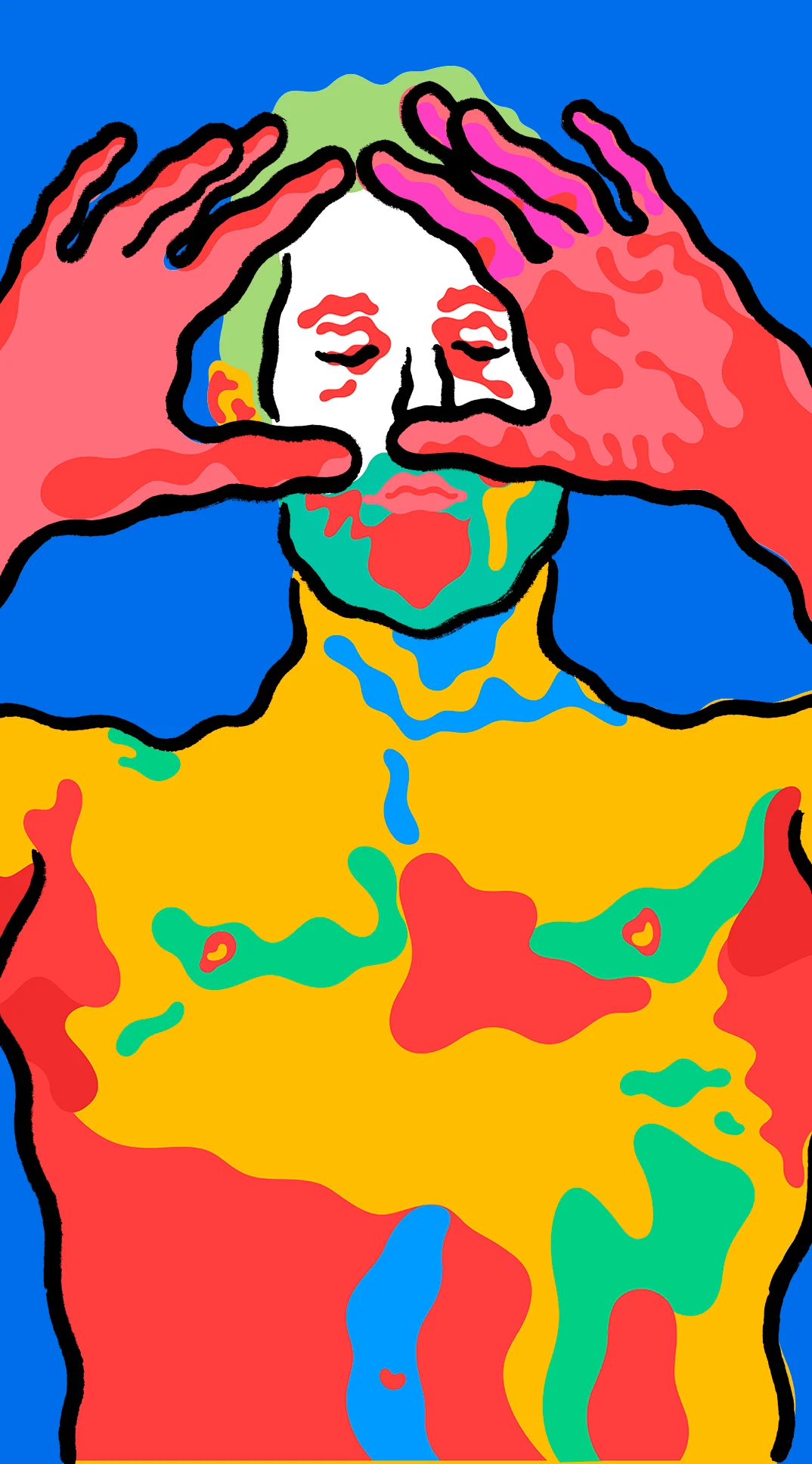
Tianju starts with a realistic sketch, before deforming it. He traces it, scans it, separates the color blocks into layers, before completing his work. The colors he uses are mainly influenced by his own mood at the time. If he’s down, they will be gloomy, and if he’s feeling good, the piece will come out bright. “It all comes together spontaneously,” he says.
Some of the images are simply self-portraits, while others are a mixture of boys he’s seen on the internet and friends. He made three pieces with one friend, Paul, a dancer, after they did a photoshoot together. “The way he moves and poses tricks me into thinking he’s underwater. It just looked so effortless and light,” he says. “The whole session gave me a feeling of being sensual but not sexual, melancholy but not sad.”

Tianju moved away from his hometown in 2007 all by himself, first to Cuba, then to Spain, the UK and finally Denmark. He feels lucky to have moved around so much these past two years, and he sees that each place he’s lived in seemed more open about gender rules than the last. This might have as much to do with his own self-discovery as it does with the places themselves. “Coming to terms with my own sexual identity and sexuality has shaped my view on what it is to be a man,” he says.
“Eventually I realised I just wanted to be happy and feel free, so I thought, why not follow less rules and have more fun,” he adds. “At this point, I think there shouldn’t even be a discussion about what it is to be a man. Why not just be a person?”
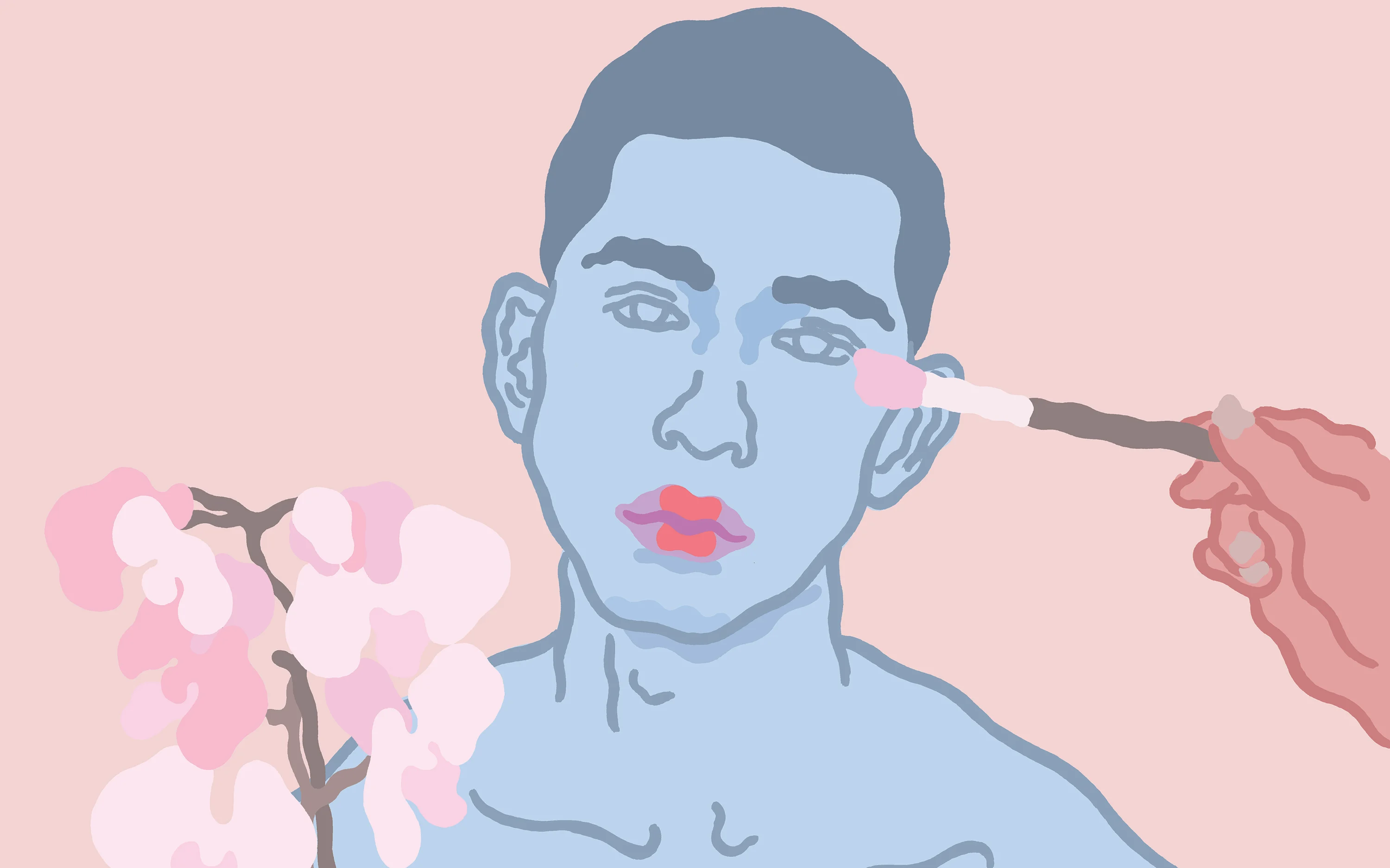

Tianju moved back to China last year when he began working in Shanghai, and he was pleased to see that many of the people he spent time with were more progressive than he anticipated. Having been surrounded by open-minded, international people for such a long time though, he was more alert to the number of people who believed in ‘traditional values.’ “It is always painful to see it,” he says. “ Boys should be boys, should be strong, handy, rough, dirty and even aggressive and dominant. There were so many well educated young girls commenting that they found their partner attractive when they got into meaningless drunk fights. They found it manly and sexy.”
Despite these setbacks, he sees progression, at the very least in his own perspective. “One important aspect of me becoming more accepting of this loose idea of masculinity is seeing a lot of non-conventional people being themselves,” he says. “The more men who are less masculine that I see who walk every step with pride and comfort, the more I feel: why not? It’s all about feeling comfortable and confident in your own skin. It’s boy power - a new masculinity against the traditional one.”


